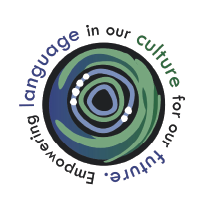Language and Culture
Language and culture are inextricably linked and cannot be considered in isolation.
Language is the verbal expression of culture – offering a powerful medium through which culture is carried forward. Our stories and songs contain the key to understanding our world, and finding our place within it.
The richness of our cultural practices, knowledge systems and cultural expressions is a great source of great strength, resilience and pride for Torres Strait and Aboriginal people. For this reason, language and culture are deeply interconnected and core parts of one’s identity.
Maintaining Strong Connections
As outlined by the Aboriginal and Torres Strait Islander Social Justice Commissioner in the Social Justice Report 2009, there is now a significant body of evidence which demonstrates a range of benefits for Indigenous peoples when they maintain strong connections with their languages and culture.
Having one’s mother tongue bestows various social, emotional, employment, cognitive and health advantages. Bilingualism provides yet another layer of advantage for minority language speakers. Keeping the mother tongue and then mastering English for example, provides minority language speakers with the advantage of being able to operate in different contexts. This in turn increases one’s life chances and employment options.
In 2012, the United Nations held a forum on ‘The Study on the role of languages and culture in the promotion and protection of the rights and identity of indigenous peoples’. Their finding, regarding the importance of traditional languages is summed up in the following quote:
Language is an essential part of, and intrinsically linked to, indigenous peoples’ ways of life, culture and identities.
Languages embody many indigenous values and concepts and contain indigenous peoples’ histories and development. They are fundamental markers of indigenous peoples’ distinctiveness and cohesiveness as peoples.




